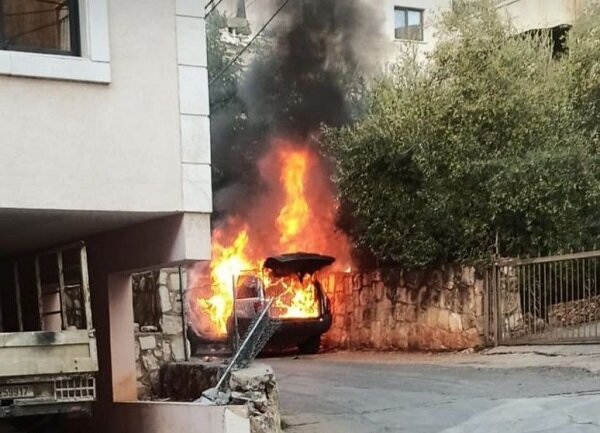Explosions Target Hezbollah Across Lebanon; At Least 42 Dead

Image courtesy of Wikimedia Commons
By Joey Broom
In Lebanon, people were going about their daily routines, be it shopping, eating, walking, driving, or socializing. Suddenly, explosions rang, blood spilled, and sirens cried. 24 hours later, another round of explosions ripped through the country, further engulfing its population in chaos.
In two unprecedented, coordinated attacks, thousands of pagers and walkie-talkies carried by members of the Lebanese Shia Islamist organization Hezbollah, who attempt to blend into the civilian population, exploded simultaneously between September 17 and 18. Explosions have been reported in Beirut, southern Lebanon, and the Beqaa Valley.
The death toll continues to climb. As of this writing, at least 42 people have been killed, including 12 civilians, and over 3,500 have been injured. Hezbollah has described the attack as the worst security breach in its history.
Hezbollah and the Lebanese government both blamed Israel for the attacks. Israel has denied involvement, but reports indicate that the explosions were the work of the Mossad, Israel’s intelligence agency. The international community has largely condemned the attacks, some countries going as far as to call them terrorism. The U.S., Israel’s closest ally, was neutral and simply said that it was not informed of the attacks ahead of time.
Established in response to the Israeli invasion of Lebanon in the 1980s, Hezbollah is one of the world’s largest non-state militias. It has engaged in a protracted armed conflict with Israel, whose destruction the organization considers its ultimate goal. It has close ties to Palestinian militant groups, including Hamas, the Sunni Islamist organization Israel is currently battling in Gaza.
Hezbollah is designated as a terrorist organization by the U.S., Israel, and many other countries, as well as the Arab League and the European Union. Conversely, it has received significant support from governments that oppose the U.S., Israel, and the West – most notably Iran, but also North Korea, Russia, and Syria.
The attacks come amidst heightened tensions between Israel and Hezbollah following Hamas’ attack on Israel on October 7, 2023, which instigated an ongoing war that has claimed more than 40,000 lives. Since October 7, Israel and Hezbollah have been exchanging strikes along the Israel–Lebanon border, displacing tens of thousands on both sides. On September 20, Israel launched an airstrike in Beirut that killed 45, including 16 members of Hezbollah’s elite Redwan Force.
Diplomats have long feared that a flare-up between Israel and Hezbollah could escalate to a full-blown war, which risks engulfing the entire Middle East in an armed conflict should allies of one or both sides enter the war.
Hezbollah had switched to using pagers and walkies to communicate after the October 7 attacks over fears that the Mossad had compromised the organization’s cell phone network. It is unclear if Israel intercepted the deliveries before they arrived in Lebanon or if the devices were rigged from the start.
Hassan Nasrallah, Hezbollah’s leader, said the attacks amounted to a declaration of war and vowed to retaliate. Israel separately stated that the Israel Defense Forces would begin redirecting resources to the Israel–Lebanon border.
The explosions are the latest in a series of Israeli attacks targeting its Islamist foes. Israel killed Fuad Shukr, a senior Hezbollah military leader, and Ismail Haniyeh, the political leader of Hamas, in July. The attacks appear to be choreographed to send Israel’s enemies the message that it has infiltrated their ranks and can strike anytime, anywhere.








